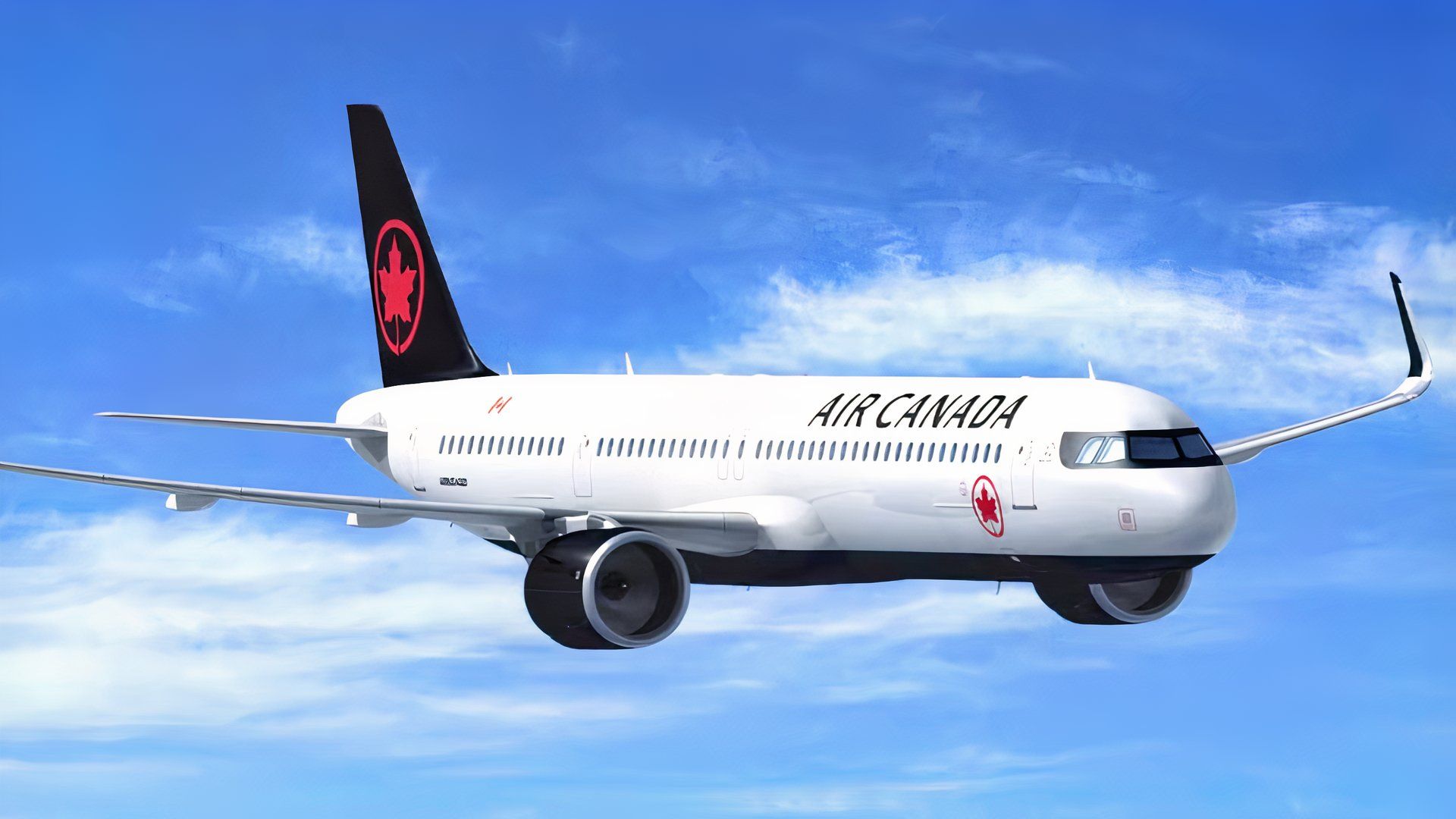World
Air Canada Expands Transatlantic Service with New Route to Porto

Air Canada is set to enhance its transatlantic offerings by introducing a new route from Montreal to Porto, utilizing the Airbus A321XLR. This announcement marks the airline’s fifth European service operated by the A321XLR, following established routes to Dublin, Edinburgh, Palma de Mallorca, and Toulouse. The Montreal-Porto route is scheduled to commence on June 1, 2026, with the airline planning to operate up to five flights weekly during peak season.
The A321XLR, which offers a range of 2,780 nautical miles (5,149 kilometers), will provide increased capacity and efficiency compared to the previous aircraft used on this route. Air Canada’s initial delivery of the A321XLR is expected in early 2026, as part of a larger order of 30 aircraft, with all units slated for lease and deliveries projected to conclude by 2028. Each aircraft will feature 182 seats, including 14 fully flat business class seats and 168 economy class seats.
The introduction of the Montreal-Porto service will allow Air Canada to compete directly with Air Transat, which previously operated flights to Porto using the A310-300 aircraft, now replaced by the A321LR. This is the first time two carriers will offer services on this route, enhancing travel options for passengers.
Air Canada’s initial A321XLR flight across the Atlantic is planned for May 15, 2026, marking the start of its transatlantic network expansion. The airline will initially operate flights to Dublin and Toulouse, with the Irish capital being the shortest European link in terms of both distance and flight time.
As the aviation industry adapts, the A321XLR is expected to play a significant role in optimizing capacity. With lower operational costs compared to widebody aircraft, it allows airlines to serve new markets and adjust capacity according to demand more effectively. This strategy is evident in Air Canada’s approach to its transatlantic routes, which aims to balance seasonal fluctuations while maintaining competitiveness.
Expanded Schedule and Increased Capacity
The revised schedule for the Montreal-Porto route will see flights departing on Mondays, Tuesdays, Wednesdays, Fridays, and Saturdays, with return flights from Porto on Tuesdays, Wednesdays, Thursdays, Saturdays, and Sundays. This change increases the total number of weekly seats available for sale to 1,820, a 2% rise compared to previous offerings.
For reference, the flight timings are as follows:
– AC928: Departing Montreal at 19:15, arriving in Porto at 07:00+1 (total flight duration of 6 hours and 45 minutes).
– AC929: Departing Porto at 12:15, arriving in Montreal at 15:00 (total flight duration of 7 hours and 45 minutes).
The airline’s strategy appears to be focused on capturing a larger market share, especially with increased frequency on the route. The shift from the A330-300 to the A321XLR will enable Air Canada to better serve demand during peak travel periods.
Future Prospects
Looking ahead, Air Canada plans to maintain a strong presence in the transatlantic market, with further announcements regarding new routes expected in the coming months. The airline’s commitment to modernizing its fleet and expanding its international network reflects its strategic focus on enhancing passenger experience while optimizing operational efficiency.
As the airline industry continues to evolve, Air Canada’s integration of the Airbus A321XLR represents a significant step towards meeting the growing demand for transatlantic travel, providing passengers with more options and enhanced service as they explore new destinations across Europe. The anticipated enhancements in service and capacity will likely encourage more travelers to choose Air Canada for their transatlantic journeys.
-

 World1 week ago
World1 week agoMass Production of F-35 Fighter Jet Drives Down Costs
-

 World7 days ago
World7 days agoGlobal Air Forces Ranked by Annual Defense Budgets in 2025
-

 Top Stories7 days ago
Top Stories7 days agoNew ‘Star Trek: Voyager’ Game Demo Released, Players Test Limits
-

 Top Stories1 week ago
Top Stories1 week agoDirecTV to Launch AI-Driven Ads with User Likenesses in 2026
-

 Lifestyle7 days ago
Lifestyle7 days agoDiscover Reese Witherspoon’s Chic Dining Room Style for Under $25
-

 Science1 week ago
Science1 week agoTime Crystals Revolutionize Quantum Computing Potential
-

 World1 week ago
World1 week agoElectrification Challenges Demand Advanced Multiphysics Modeling
-

 Science7 days ago
Science7 days agoWaning Crescent Moon: What to Expect on October 17
-

 Entertainment1 week ago
Entertainment1 week agoFreeport Art Gallery Transforms Waste into Creative Masterpieces
-

 Science1 week ago
Science1 week agoTulsa Students Inspire New Book on Ralph Ellison’s Legacy
-

 Health7 days ago
Health7 days agoResearchers Uncover New Insights into Cancer Mortality Causes
-

 Top Stories6 days ago
Top Stories6 days agoToshiba Announces 40TB HDD for 2027, Faces Stiff Competition









